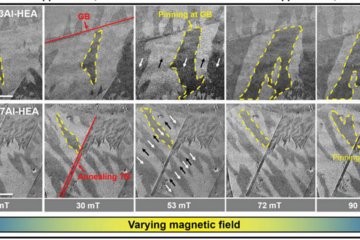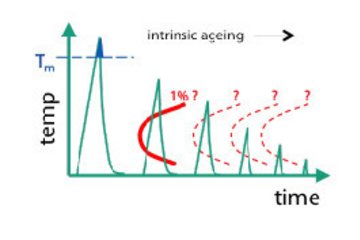All genres
121.
Talk
Thermodynamics and adatom kinetics of non-polar GaN surfaces. Spring meeting of the German Physical Society (DPG), Berlin, Germany (2008)
122.
Talk
An ab-initio study of the hydrogen-bond network in crystalline alpha-chitin. Spring meeting of the German Physical Society (DPG), Berlin, Germany (2008)
123.
Talk
Eigenspannungen am Hummerexoskelett. Sitzung des FA 13 Eigenspannungen am AWT, IFW Dresden, Germany (2007)
124.
Talk
Solid-Solid interfaces. International Max-Planck Workshop Multiscale Materials Modeling of Condensed Matter, Sant Feliu de Guixols, Spain (2007)
125.
Talk
Thermodynamics and kinetics of non-polar GaN surfaces. PAW workshop 2007, Goslar, Germany (2007)
126.
Talk
Residual Stresses in the Exoskeleton of a Homarus americanus Lobster. MECASENS IV, Wien (2007)
127.
Talk
Ab-Initio Based Multiscale Calculations of Grain Boundaries in Aluminum. Euromat 2007, Nürnberg, Germany (2007)
128.
Talk
Nonlinear Elastic Effects in Group III-Nitrides: From ab-initio to Finite Element Calculation. 17th International Conference on Computer Methods in Mechanics CMM-2007, Spala, Poland (2007)
129.
Talk
Nonlinear Elastic Effects in Group III-Nitrides: From ab-initio to Finite Element Calculation. 17th International Conference on Computer Methods in Mechanics CMM-2007, Spala, Poland (2007)
130.
Talk
Ab-initio based multiscale analysis of the 5D configurational space of Grain Boundaries in Aluminum. Spring meeting of the German Physical Society (DPG), Regensburg, Germany (2007)
131.
Talk
Nonlinear Elastic Effects in Group III-Nitrides. Spring meeting of the German Physical Society (DPG), Regensburg, Germany (2007)
132.
Talk
Implementation and application of a multi-scale approach to electronic properties of group III-nitride based semiconductor nanostructures. Workshop on Nitride Based Nanostructures, Berlin, Germany (2007)
133.
Talk
Ab-initio based multiscale caclulations of Grain Boundaries in aluminum. 1. Harzer Ab initio Workshop, Clausthal-Zellerfeld, Germany (2006)
134.
Talk
Kinetically stabilized ordering in AlGaN alloys. Institute of Fundamental Technological Research, Polish Academy of Sciences, Colloquium, Warsaw/Poland (2006)
135.
Talk
Ab-initio based multiscale calculations of low-angle grain boundaries in Aluminum. DPG spring meeting, Dresden, Germany (2006)
136.
Talk
Ab-initio based multiscale calculations of extended defects in condensed matter. Ab initio Description of Iron and Steel (ADIS2006), Ringberg Castle (2006)
137.
Talk
Electronic properties of non-stoichiometric dislocation cores in GaN. Materials Research Society fall meeting, Boston, MA, USA (2005)
138.
Talk
The role of strain fields, core structure, and native defects on the electrical activity of dislocations in GaN. The 6th International Conference on Nitride Semiconductors, Bremen (2005)
139.
Talk
Formation of steps and vicinal surfaces on GaN (0001) surfaces: Implications on surface morphologies and surface roughening. DPG spring meeting, Berlin, Germany (2005)
140.
Poster
Limits of Indium Incorporation on In1-xGaxN {0001} III- and N-Polar Surfaces: An Ab Initio Approach. 10th International Conference on Nitride Semiconductors, Washigton DC, USA (2013)











